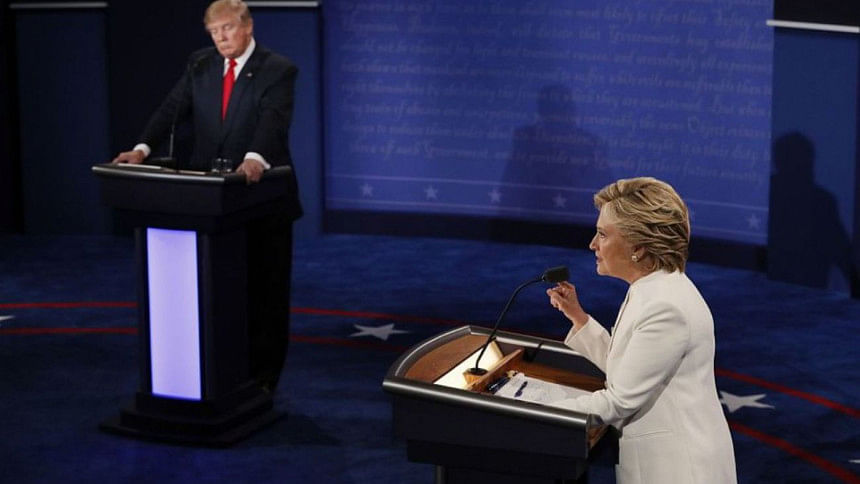200yrs old acrimony returns to US politics

Two hundred years old political acrimony may offer some solaces for Hillary Clinton and Donald Trump.
This presidential election has already been labeled as ugly for negative and nasty campaign by the presidential contenders. But it may not be described as the dirtiest election in the history of American democracy.
Nasty campaigns in some previous US elections including 1800, 1824 and 1828 will protect this election from mercilessly being criticised for ugliness.
But this battle of ballots has been blamed for bringing back 200 years old dirty politics in modern US history.
The candidates in the 1824 election were Secretary of State John Quincy Adams, Speaker of the House Henry Clay, Congressman John C. Calhoun of South Carolina, Secretary of the Treasury William Crawford and Andrew Jackson, the hero of the War of 1812.
The election campaign was centered on individual personalities as well as regional economic interests.
Throughout the campaign supporters of the candidates made use of published letters, newspapers, and handbills to promote their choice and vehemently attack opponents.
Jackson was accused of murder by opponents' supporters. Clay was denounced as a drunkard. Adams was considered an aloof snob, and Crawford was accused of mismanaging public funds.
In the election, Andrew Jackson received the greatest number of popular and electoral votes. But no candidate received a majority, and the contest went to the House of Representatives.
With Clay’s support, the House decided on Adams as president. Shortly after, Henry Clay was announced as the new secretary of state. Jackson supporters were furious. They claimed that their candidate, despite having received the most popular votes, had been cheated by a “corrupt bargain” between Adams and Clay.
Acrimony between them worsened further in the presidential election of 1828. Both sides engaged in vehement mudslinging with distorted stories about both candidates printed in newspapers and posters.
President Jhon Adams was accused of a “corrupt bargain” in the 1824 election. He was also accused him of gambling in the White House by supporters of Jackson.
Supporters of Adams, in counter, accused Jackson of numerous sins including gambling, slave trading, adultery, and murder.
However, Jackson’s image and popularity, as well as his new campaign style of mixing entertainment with politics, brought him a decisive victory.
Mudslinging inspired by Thomas Jefferson’s two successful campaigns for the presidency was often as ugly as anything heard on the stump with Trump and “crooked Hillary”, said a recent article of the Guardian.
In the 1800 presidential election, Jefferson fought John Adams, whose supporters charged that Jefferson was a godless libertine in thrall to the French. This election was said to have been “one of the most acrimonious in the annals of American history”, according the article published on November 6.
There was an interesting side of those elections. Candidates himself did not campaign for them. This continued until the presidential election of 1840. This custom saved the presidential candidates from engaging in mudslinging personally.
In the first and second elections, there was no official nomination. George Washington was held in such high esteem by the other founding fathers and was so popular that there were no serious rivals to his election. He did not campaign for the office or give speeches on his own behalf. He was elected president unopposed twice.
But things took different turn in third presidential election held in 1796. Thomas Jefferson, who was sympathetic to the idea of liberty in the French Revolution, was labeled by supporters of his opponent candidate as an “anarchist.”
After two hundred years, Republican presidential candidate Trump has been synonymous with xenophobia, racism and misogyny. Ugliness is now a property of Trump. In defence, he can refer to the dirty campaigns in pas elections.
If Clinton elected making history for being the first US female president, her win will bear the memory of ugliness of the election. But this election is not the lone ugly one. Old history may offer her some solace.

 For all latest news, follow The Daily Star's Google News channel.
For all latest news, follow The Daily Star's Google News channel. 



Comments